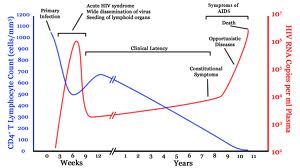Abstract
To evaluate the correlation of detection of human immunodeficiency virus (HIV) by polymerase chain reaction (PCR) with detection of HIV antibody, 271 simultaneous serum and peripheral blood mononuclear cell samples were examined from 242 persons whose activities placed them at increased risk for HIV infection: 142 from homosexual men, 86 from hemophilic men, and 43 from heterosexual partners of HIV-infected persons. PCR was performed using the gag region primer pair SK38/39 and the env region primer pairs SK68/69 and CO71/72. Amplified HIV DNA was detected using specific oligomer probes. Of 63 HIV antibody-positive samples, 58 (92%) had HIV DNA by PCR. Of 208 HIV antibody-negative samples, 7 (3.4%) had HIV DNA by PCR. On follow-up, 4 of the latter persons were seropositive when next tested; 2 were well and antibody- and PCR-negative; 1 had died of a stroke before retesting. Thus, PCR detects HIV in most antibody-positive persons; detection is increased by use of multiple primer pairs. PCR-positive antibody-negative specimens may indicate HIV infection in which antibody has not yet developed or may be false-positive PCR results. When PCR is discordant with HIV antibody, testing of additional specimens and clinical follow-up are necessary to assess HIV infection status.
Horsburgh CR, Ou CY, Jason J, Holmberg SD, Lifson AR, Moore JL, Ward JW, Seage GR, Mayer KH, Evatt BL
J. Infect. Dis. 1990 Aug;162(2):542-5
PMID: 2373878
J-Infect-Dis.-1990-Horsburgh-542-5